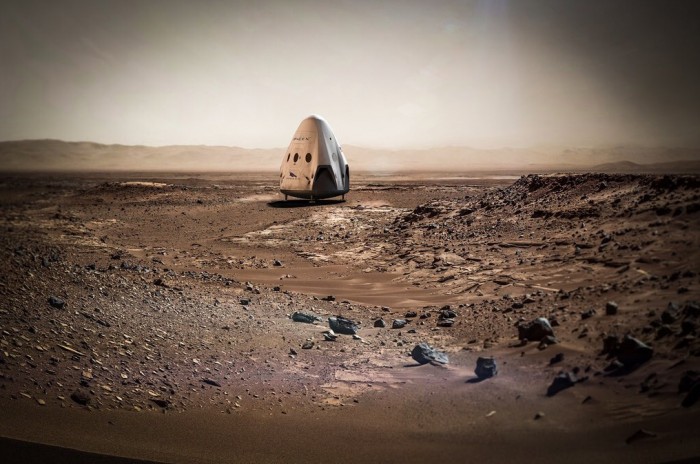Elon Musk May Go to Mars, but Would You?
My nomination for best phrase of the week is “Red Dragons will inform overall Mars architecture.”
That’s what Elon Musk’s SpaceX put in a tweet announcing that it will try to land an unmanned capsule on the red planet “as soon as 2018.” That in itself is admirably ambitious. But like a space-bound rocket, the idea really gets going in the second stage, as we wrap our minds around the possibility of something you could call an “overall Mars architecture.”
That’s because getting to Mars is not the hard part—the hard part will be landing there over and over and keeping people alive there, as Musk dreams of doing. I’m not talking solely about the physical difficulties of overcoming the low gravity, radiation, dust storms, and unbreathable air. I’m also wondering how SpaceX will fund the architecture of a Mars settlement.

NASA plans on sending astronauts to Mars in the 2030s. Surely along the way the agency, which will work with SpaceX on the upcoming Mars capsule without providing funds, and other governments could give the company some big Mars-related contracts. But NASA talks about exploring Mars—it’s Musk who talks colonization. Just how you might cover the costs of that far more expansive endeavor still needs to be explained. SpaceX promises some more details in September.
(Read more: Wired, Aeon, “10 Breakthrough Technologies 2016: Reusable Rockets,” “The Deferred Dreams of Mars”)
Keep Reading
Most Popular
Large language models can do jaw-dropping things. But nobody knows exactly why.
And that's a problem. Figuring it out is one of the biggest scientific puzzles of our time and a crucial step towards controlling more powerful future models.
The problem with plug-in hybrids? Their drivers.
Plug-in hybrids are often sold as a transition to EVs, but new data from Europe shows we’re still underestimating the emissions they produce.
How scientists traced a mysterious covid case back to six toilets
When wastewater surveillance turns into a hunt for a single infected individual, the ethics get tricky.
Google DeepMind’s new generative model makes Super Mario–like games from scratch
Genie learns how to control games by watching hours and hours of video. It could help train next-gen robots too.
Stay connected
Get the latest updates from
MIT Technology Review
Discover special offers, top stories, upcoming events, and more.